Search Results
Showing results 781 to 800 of 817

Toss a Score!
Source Institutions
In this math game, learners toss plastic cups to land just right and collect points to win.
The Same Names
Source Institutions
In this math activity, learners make and explore patterns using the letters in their names, a grid, and some colors.

Sea Turtle Populations
Source Institutions
In this activity (on page 2 of PDF under GPS: Sea Turtles Activity), learners will model how a sea turtle population changes over time, from eggs to adults, using puffed rice.
Pattern Families
Source Institutions
In this math activity, learners sort patterns into similar "families" or groups that have the same pattern, but different symbols.
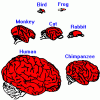
Jump to It!
Source Institutions
This is a quick and simple demonstration about reflexes (second activity on the page).

Papel Picado
Source Institutions
En esta actividad, los aprendices exploran la simetría haciendo papel picado, una decoración común en México para las celebraciones.
Ride on a Slide: Toys or Tubes Ride Slopes and Angles
Source Institutions
This activity is a hit for family events and all ages—some will finish in 45 minutes; others can go on for hours.

Push: Water Ski Over the Sharks
Source Institutions
This is an online activity about acceleration. Learners will choose a speed and an angle in order to help a water-skier named Fonzie use a ramp to clear a shark.

Genetics the Easy Way
Source Institutions
In this activity, learners make critters out of recyclables and apply the rules of mathematics to solve genetics problems.

Amphipods: More than Mud
Source Institutions
In this data analysis and environmental science activity, learners examine the effects of pollution on amphipods using data from the Chesapeake Ecotox Research Program.
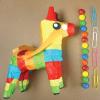
Family Math Activity: Measuring with Paper Clips and M&Ms
Source Institutions
In this activity, young learners and their caregivers use non-standard tools, like M&Ms and paper clips, to measure things around their home.
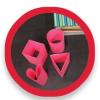
How to Test The Strength of Shapes
Source Institutions
In this activity, learners explore the strength of different shapes. Fold paper into triangles, squares, and other shapes, then experiment with how much weight they can hold.
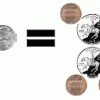
Balanced Budget Chemistry
Source Institutions
In this activity, learners balance chemical equations and discover the law of conservation of mass. Learners use coins to model molecules to balance the equations.

Backyard Biodiesel
Source Institutions
In this activity, learners make a small batch of biodiesel that will work in any diesel engine. Learners use an old juice bottle as a "reactor" vessel to chemically process vegetable oil into fuel.
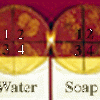
Handwashing Laboratory Activities: Fingerprint Technique
Source Institutions
In this lab (Activity #1 on page), learners compare bacteria growth on two petri dishes containing nutrient agar: one that has been touched by a finger washed only with water and one that has been tou
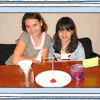
Make Your Own Weather Station
Source Institutions
This three-part activity shows learners how to build three meteorology tools: a wind vane, a rain gauge, and a barometer.
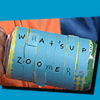
Scytale Messages
Source Institutions
In this activity, learners use a soda can to decode a secret message. Learners wrap scytale (pronounced ski-tally) code around a can and challenge friends to see if they can crack the codes.

Mountain Rescue Mission
Source Institutions
In this math activity, learners play a game that helps reinforce learners' understanding of the coordinate system.
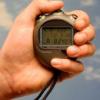
Just a Minute
Source Institutions
How much can you do in one minute? In this activity, learners estimate how many times a partner can complete a task (like writing their name or jumping jacks) in one minute.

Self-Assembly Game
Source Institutions
This is a quick game about self-assembly (page 2 of PDF under Self-Assembly Activity). Like the molecules of DNA, learners will self-assemble into a pattern by following a simple set of rules.
